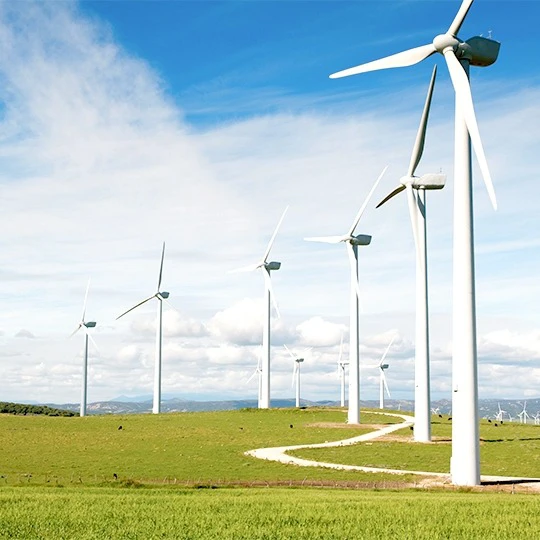Supply Chain Management
The Tokyo Seimitsu Group considers all of our suppliers to be our valued partners. Through collaboration with our suppliers, we aim to develop a strong supply chain that contributes to a sustainable society by autonomously responding to the needs of the international community as a responsible company.
Procurement Policy
In providing high-performance, high-quality products and services to customers, the Tokyo Seimitsu Group deepens partnerships with all suppliers through procurement, builds mutual cooperation and trust, and forges relationships that allow us to grow and develop together.
In addition to quality, we comply with laws and social norms, and engage in procurement activities that fulfill social responsibilities such as human rights, labor, safety and health, global environmental protection, and information security throughout the supply chain.
Through fair and impartial evaluation processes and communication, we will respond to market changes and promote high-value-added manufacturing together with reliable suppliers.
Supply Chain Promotion Structure
The Group has set supply chain development as one of its materiality in pursuing the sustainability of its business and society. Recognizing the importance of dialogue with suppliers to build a sustainable supply chain, we established a Supply Chain Team in the Sustainability Department and established a Supply Chain Working Group* in July 2023 which is led by that team. We will work to manage supply chain issues and reduce risks by creating opportunities and environments for dialogue with suppliers.
* Supply Chain Working Group
Formed after integration of the Supply Chain Team, which was responsible for planning and execution of supply chain management and sustainable procurement, and its subordinate organization, the Supply Chain Promotion Subcommittee. This working group is established as a subcommittee of the Sustainability Committee. Any matters that the working group thinks may affect business management are promptly reported by the Sustainability Committee to the Board of Directors for deliberation.
Key Activities in Fiscal 2024
In fiscal 2024, the working group convened five times. For major activities, refer to “Sustainability Promotion Structure/FY2024 Subcommittees/Supply Chain Working Group.”
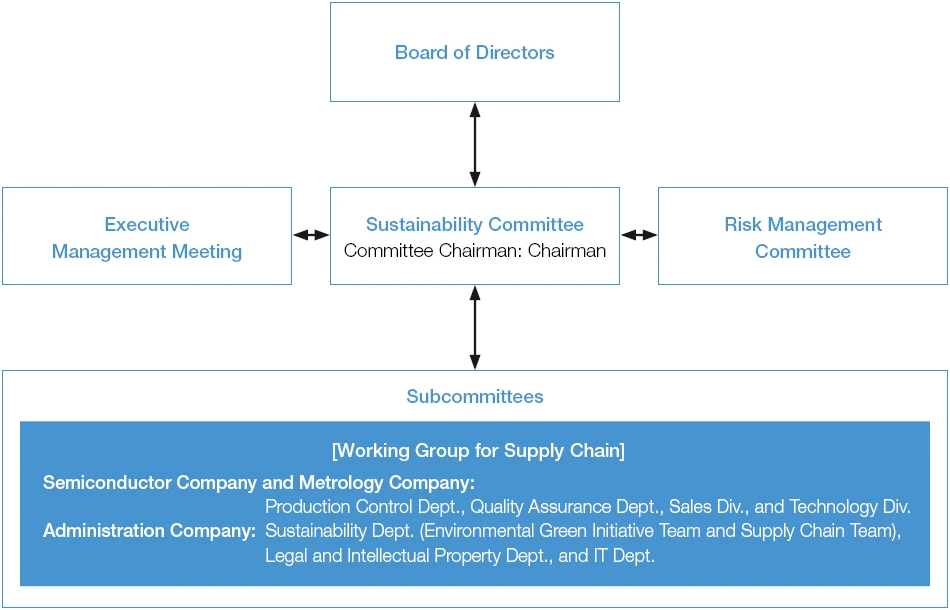
Basic Transaction Agreement
Tokyo Seimitsu revised its Basic Transaction Agreement in May 2024. In addition to clauses such as legal compliance, anti-bribery and anti-corruption, and personal information protection, we have added clauses to strive to comply with our standards (CSR Guidelines, Information Security Standards, and Green Procurement Standards) to clarify that we will work together to fulfill our social responsibilities throughout the supply chain.
Supplier CSR Guidelines
We have declared our compliance with the Responsible Business Alliance (RBA) to meet the demands of the international community, including corporate responsibility for the safety of the working environment, worker dignity and environmental impact throughout our supply chain. Based on the RBA Code of Conduct, we have formulated the “Tokyo Seimitsu Supplier CSR Guidelines” that set out our requirements with regard to “procurement policy,” “human rights and labor,” “occupational safety and health,” “the environment,” “ethics,” “safety and quality,” and “information security.” We ask that our suppliers understand the purpose of these guidelines and cooperate with us in promoting sustainable procurement activities as well as provide us with written confirmation that they have checked and understand the content of the guidelines.
Tokyo Seimitsu’s Supplier CSR Guidelines
Supplier CSR Guidelines Check Report
Green Procurement Standards
Tokyo Seimitsu promotes green procurement and has established the Green Procurement Standards, which indicate that we prioritize the procurement of environmentally-friendly parts and materials from suppliers with well-established management systems.
Based on the “Green Procurement Guidelines” established in April 2003, these standards were established in April 2024 to comply with environmental laws and regulations which have become more stringent. In July 2024, we held a supplier briefing session hosted by the Supply Chain Working Group to promote understanding of these standards and cooperation based on them.
Sustainable Supply Chain Development
Supplier CSR Survey
Since fiscal 2016, we have conducted surveys using Supply Chain Management (SCM) check sheets to grasp our suppliers’ efforts to address environmental and social issues. We have conducted sustainability assessments based on RBA SAQ since fiscal 2022.
To get a more accurate grasp of the conditions of the entire supply chain, the surveys have been targeted at the major suppliers in the top 80% in terms of procurement costs since fiscal 2023. In fiscal 2024, 112 companies responded to the survey (response rate: 92.6%).
The results of the assessment analysis are individually provided to suppliers as feedback. For items where efforts are found to be insufficient, suppliers are requested to take corrective actions and improvement measures.
Results of supplier CSR surveys
| Unit | FY2022 | FY2023 | FY2024 | |
| Surveyed companies | total | 56 | 125 | 121 |
| Ratio of procurement amount | % | 26 | 80 | 80 |
| Responding companies | total | 53 | 113 | 112 |
| Response rate | % | 94.6 | 90.4 | 92.6 |
Survey Content
| Type | Number of questions | Assessment items |
| Labor | 19 | Items related to human rights, such as foreign workers, child workers, overtime labor, forced labor, abuse, and discrimination |
| Health and Safety | 11 | Items related to occupational safety, work that uses chemicals, or work that is physically demanding |
| Environment | 8 | Items related to understanding the company's greenhouse gas emissions and reduction targets |
| Ethics | 9 | Items related to bribery and corruption, privacy and information security |
| Management System | 12 | Items related to the establishment of processes for continuous improvement in labor, health and safety, the environment, and ethics |
Survey Results
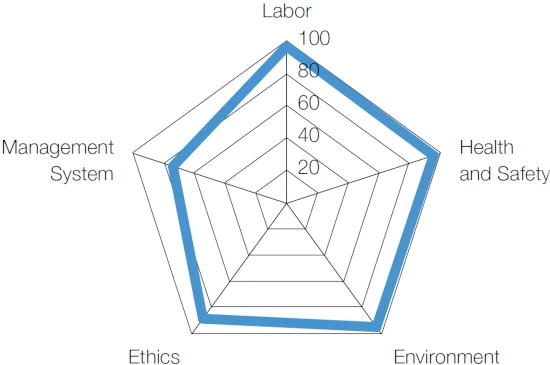
Curtailing and Managing Environmental Impact (Risk)
We ask our suppliers to use the "Environmental Management Structure Survey Sheet" or "Environmental Management Checklist" for survey and evaluation purposes, and to develop and manage systems to avoid environmental risks in the supply chain. Suppliers that outsource product manufacturing or services are required to participate in a survey conducted by our Company every two years regarding human health and living environments, including air pollution, water pollution, the Offensive Odor Control Act, vibration and noise facilities, and specially controlled wastes.
Opportunities and Environments for Holding Dialogues with Suppliers
Supplier Briefing Sessions (Hachioji)
We hold supplier briefing sessions to serve as opportunity for holding dialogue with suppliers.
We plan to hold these briefing sessions annually so that suppliers can understand and cooperate with our sustainable procurement initiatives.
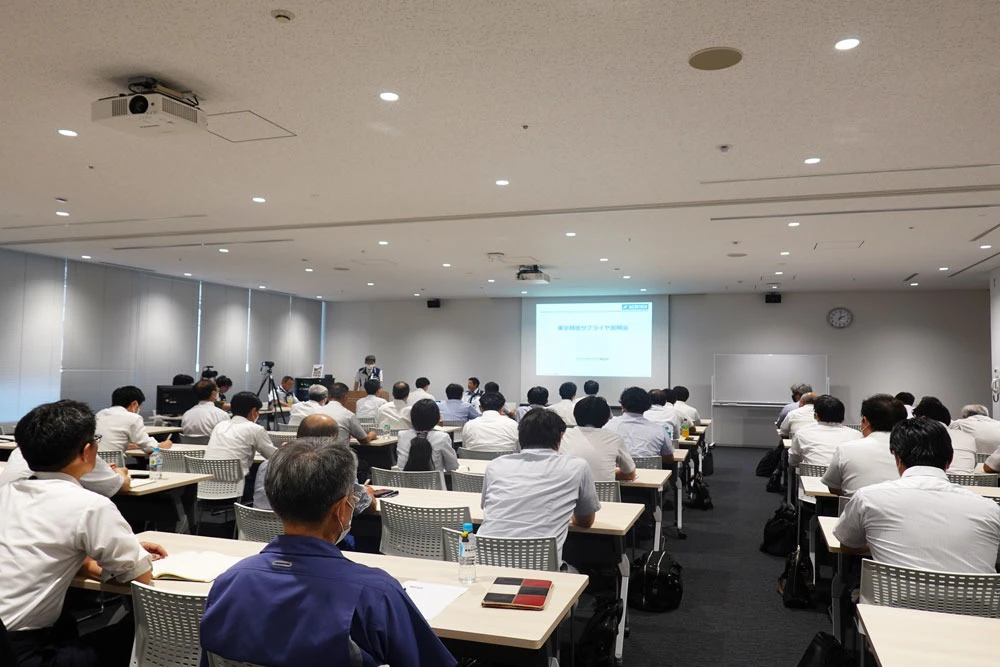
[Held on July 22, 2024]
The supplier briefing session, held at Tokyo Tama Mirai Messe in Hachioji City, Tokyo, was attended by 135 people from 103 companies (including online participants).
We requested the suppliers to cooperate in human rights due diligence to reduce human rights violation risks, as well as to understand our CSR guideline, human rights policy, environmental policy, green procurement standard, and supplier information security standard. We also asked them to cut GHG emissions of the entire supply chain, not to use conflict minerals, and to re-sign the revised Basic Transaction Agreement. After the briefing session, we conducted a security survey based on the supplier information security standard. The survey results and our recommended measures were put together as a handbook, which was handed to the suppliers along with a feedback report.
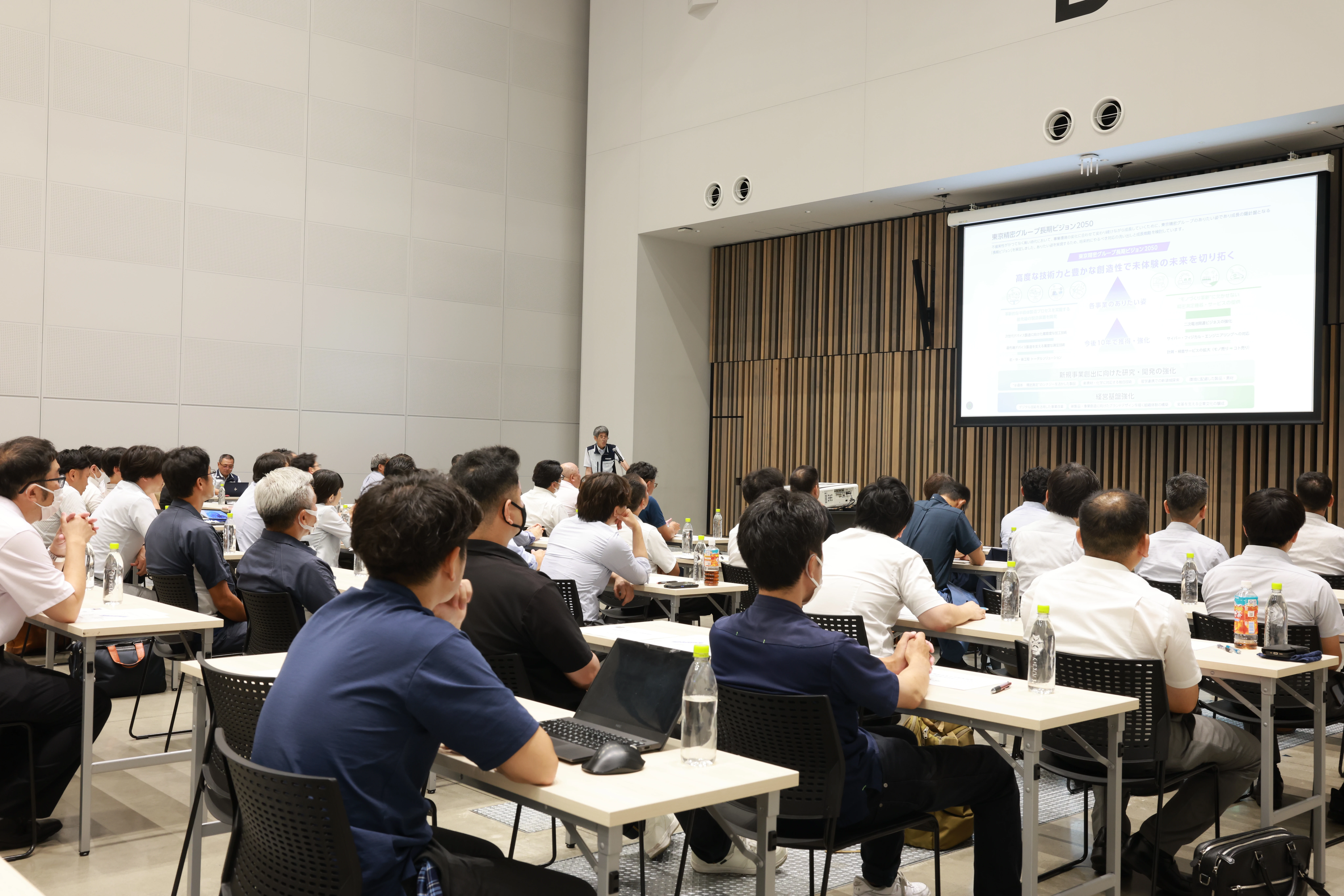
[Held on July 22, 2025]
The supplier briefing session, held at Tokyo Tama Mirai Messe in Hachioji City, Tokyo, was attended by 112 people from 83 companies (including online participants).
After presenting the Tokyo Seimitsu Group’s sustainability structure and its materiality and related initiatives, we explained our CSR guideline, human rights policy, environmental policy, green procurement standard, supplier information security standard, and external whistleblower contact point. We asked for their understanding and cooperation regarding our sustainable procurement efforts as well, such as non-use of conflict minerals and green procurement. We also told the suppliers about the human rights due diligence, CSR, and security surveys to be conducted after the briefing session.
We continue to value the relationship with our suppliers, strive to promote sustainable procurement, and aim to contribute to the creation of an affluent society by helping to make society sustainable and earning the trust of stakeholders.
Supplier Briefing Sessions (Furudono)
We held a supplier briefing session at the Furudono Plant for potential suppliers as a result of the transfer of the charge/discharge testing system development/manufacturing/sales business of ACCRETECH Powertro System Co., Ltd., a consolidated subsidiary of Tokyo Seimitsu.
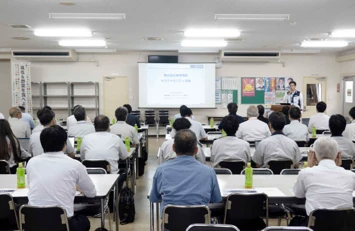
[Held on August 22, 2024]
The supplier briefing session, held at the Furudono Plant in Furudono-machi, Ishikawa-gun, Fukushima, was attended by 48 people from 38 companies.
We explained about our electronic transaction system (ACCRETECH Web-EDI System), environmental policy, control of chemical substances contained in product, and sustainability activities. We asked the suppliers to register with the electronic transaction system and to understand and cooperate in cloud-based surveys on chemical substances contained in product as well as human rights due diligence, CSR, and information security surveys. We also requested the suppliers to sign the Basic Transaction Agreement, which includes provisions stipulating that efforts must be made to comply with our standards (CSR guideline, information security standard, and green procurement standard).
We value the relationship with the suppliers involved in our charge/discharge testing system business and keep working to develop a sustainable supply chain.
CSR Seminars
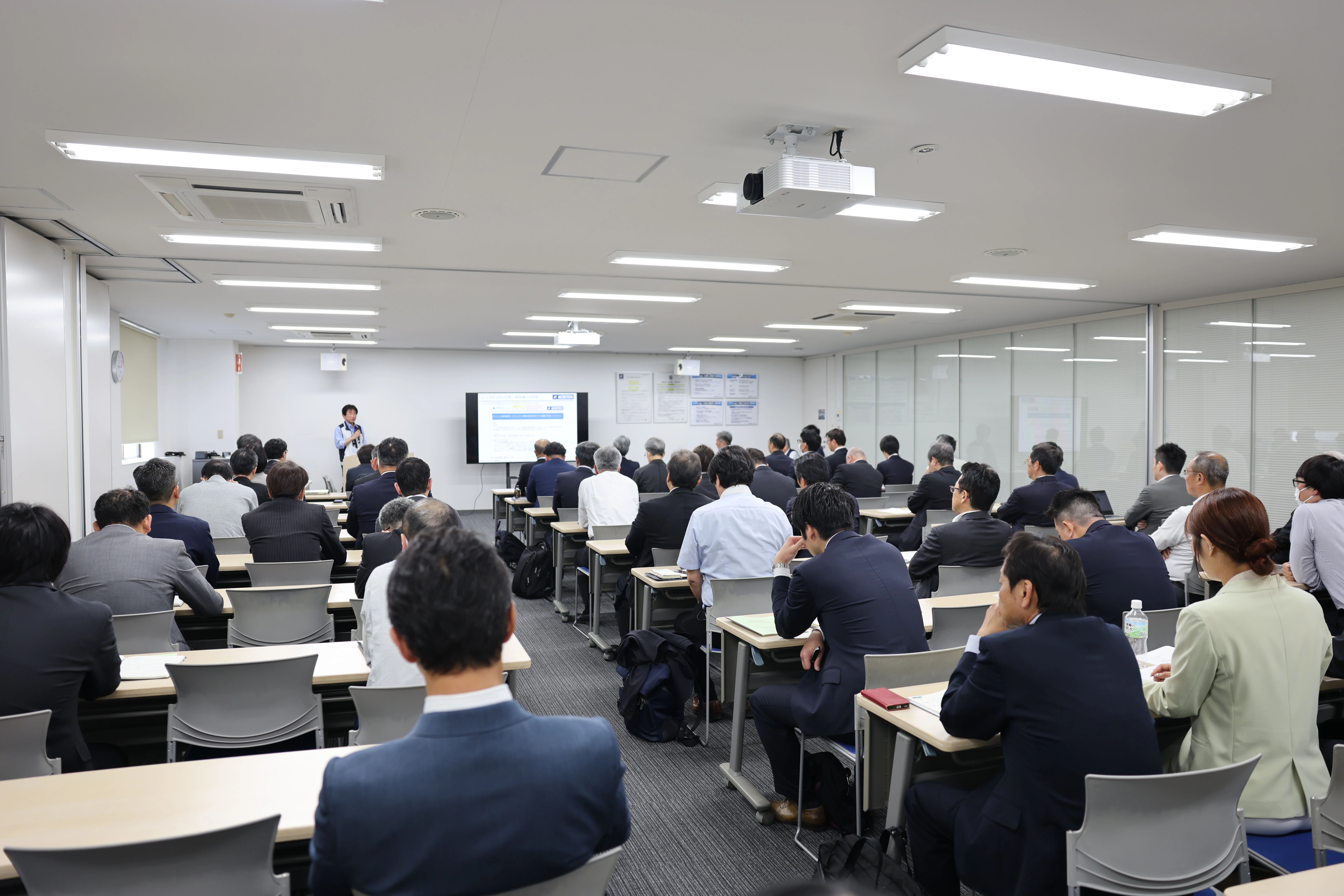
Every year, Tokyo Seimitsu offers CSR seminars at workshops sponsored by suppliers. At the CSR seminar held in May 2025, we asked our suppliers to strengthen their abilities to address business continuity risks posed by cyberattacks and recognize information security measures as management challenges, based on the results of the information security survey conducted in 2024.
Web-Based System for Suppliers
We are developing a “web-based system for suppliers” to share information with suppliers, broadly and without redundancy. This system will address the ever-growing need for information sharing, including supplier CSR surveys, notifications of disasters such as earthquakes and heavy rains, surveys of damage conditions, and communication of various notifications. We will use this system to build a structure for more sustained and active communication with suppliers.
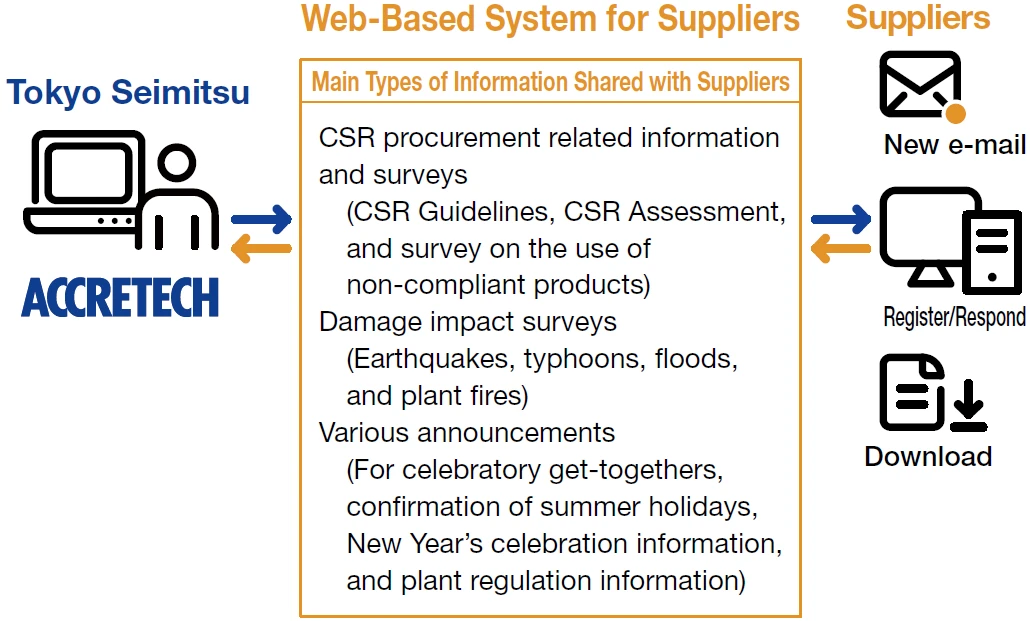
Key Information Dissemination in Fiscal 2024
Annual event announcements
“ACCRETECH Web-EDI System” related Information
ISO certification status surveys (quality/environment), etc.
Supplier Commendations
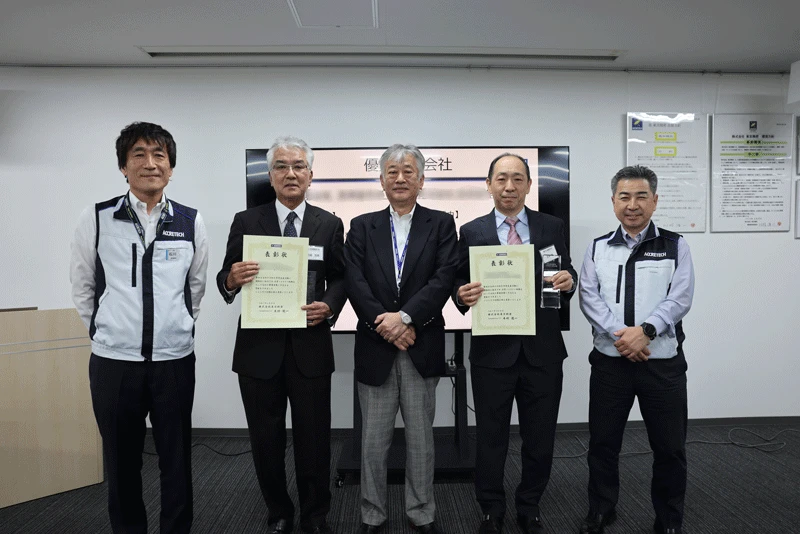
Once a year, the Company conducts commendations for suppliers. We commend outstanding suppliers based on evaluations of five items: “quality,” “cost,” “delivery time,” “rate of cooperation,” and “management.” In fiscal 2024, we commended two business partners and presented them with certificates of recognition.
Business Partnership Building Declaration
On February 1, 2023, Tokyo Seimitsu announced its “Business Partnership Building Declaration” in support of the aims of the “Council for Promoting Partnership Building for the Future*.” We aim to build new partnerships by promoting collaboration, co-existence, and co-prosperity with business partners in the supply chain and businesses seeking to create value.
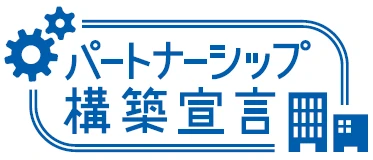
* Council for Promoting Partnership Building for the Future
This council conducts activities to promote co-existence and co-prosperity for companies throughout the entire supply chain and new cooperative relationships where size, affiliation, and other factors are irrelevant. Members include relevant cabinet ministers (from the Cabinet Office, METI, MHLW, MAFF, and MLIT as well as the Deputy Chief Cabinet Secretary), Keidanren Chairman, NCCI Chairman, and Rengo Chairman.
Electronic Transaction System
In December 2023, we launched our electronic transaction system (ACCRETECH Web-EDI System) into operation. Web-EDI is a system for electronically exchanging information, such as order placement and receipt, between companies using a Web browser. The system makes procurement operations more efficient, paperless, and compliant with invoice reporting and the Electronic Books Maintenance Act. It aims to strengthen compliance (compliance with laws and regulations such as the Subcontract Act) by accumulating and visualizing transaction information, and to enable a faster initial response by quickly grasping the situation of suppliers in the event of a disaster and its impact on production.
Training for Employees
We conduct training for employees in Procurement Section and Procurement Team to develop human resources who promote responsible procurement. In fiscal 2024, we provided e-learning training for Tokyo Seimitsu employees on the “Subcontract Act (Act against Delay in Payment of Subcontract Proceeds, etc. to Subcontractors)” and “security export control.”
[Subcontract Act ]
Target group:1,311 (employees of Tokyo Seimitsu Co., Ltd.)
Participation rate:100%
[security export control]
Target group:1,413 (employees of Tokyo Seimitsu Co., Ltd.)
Participation rate:100%
Environment・Society・Governance
